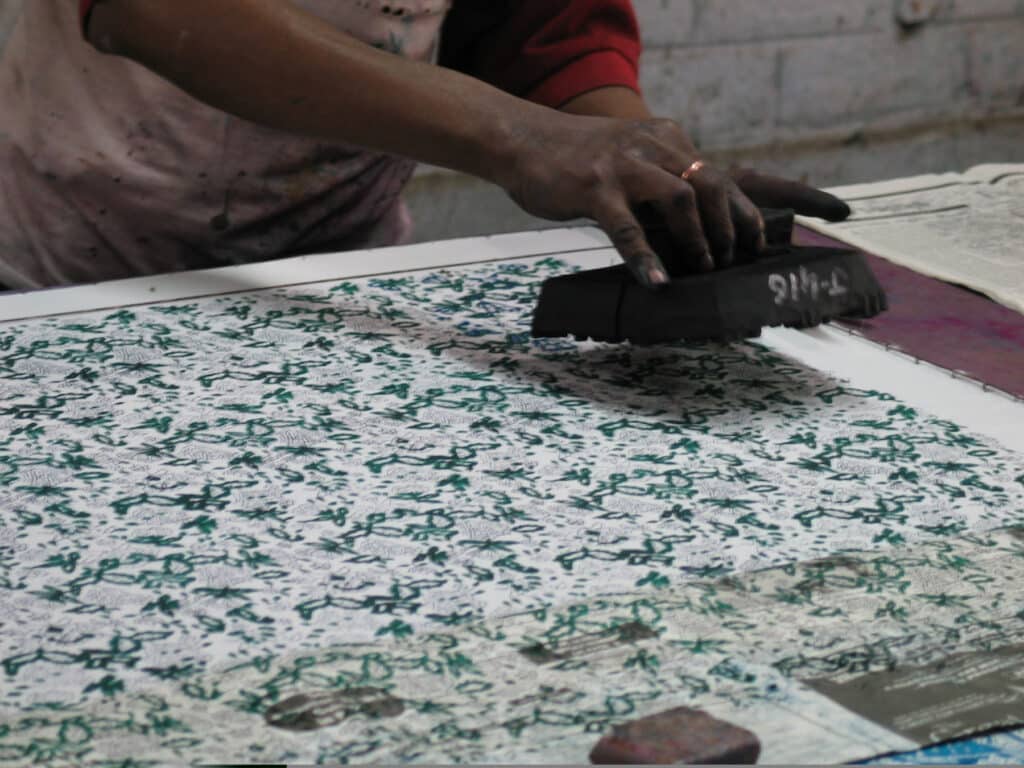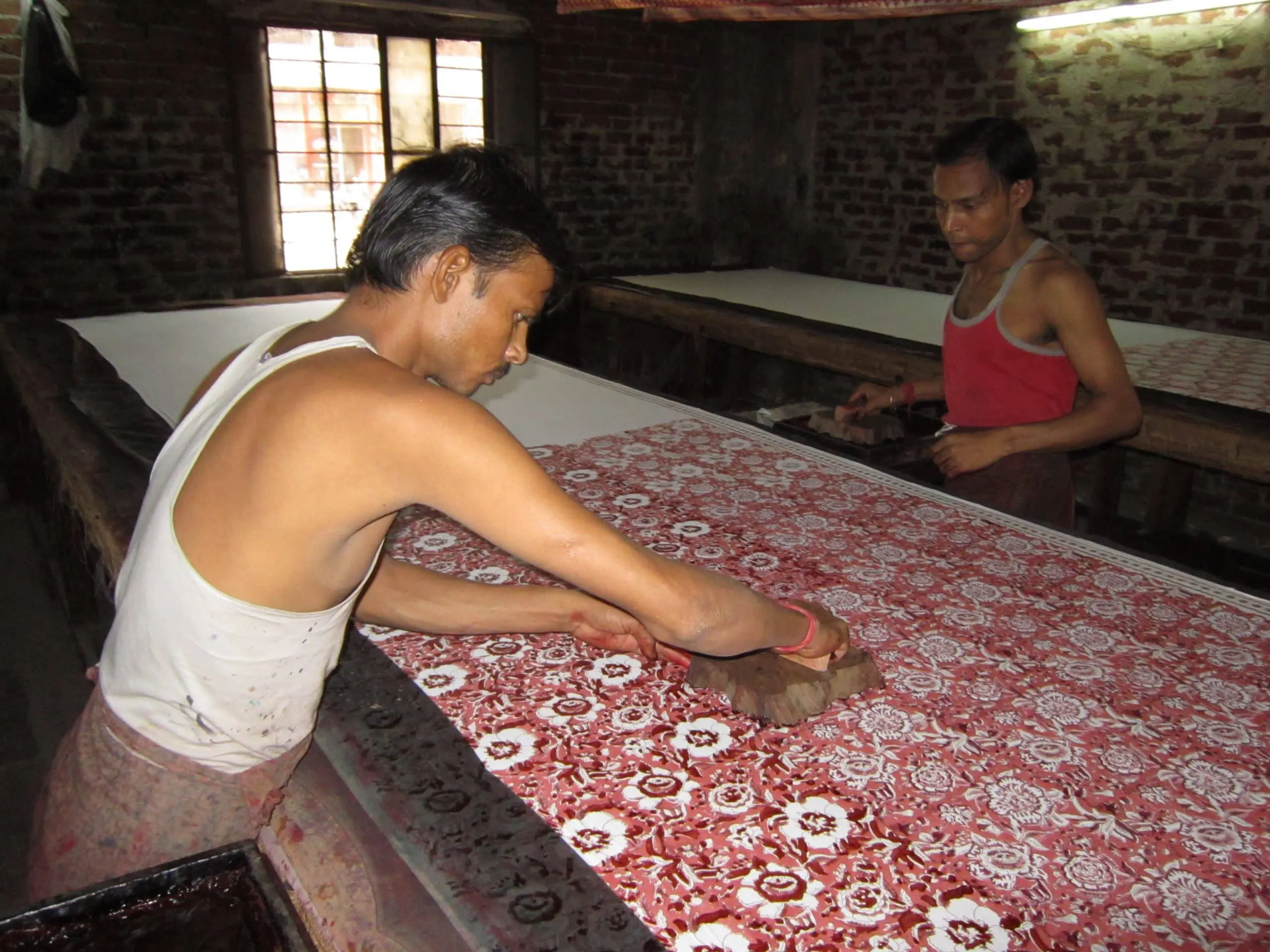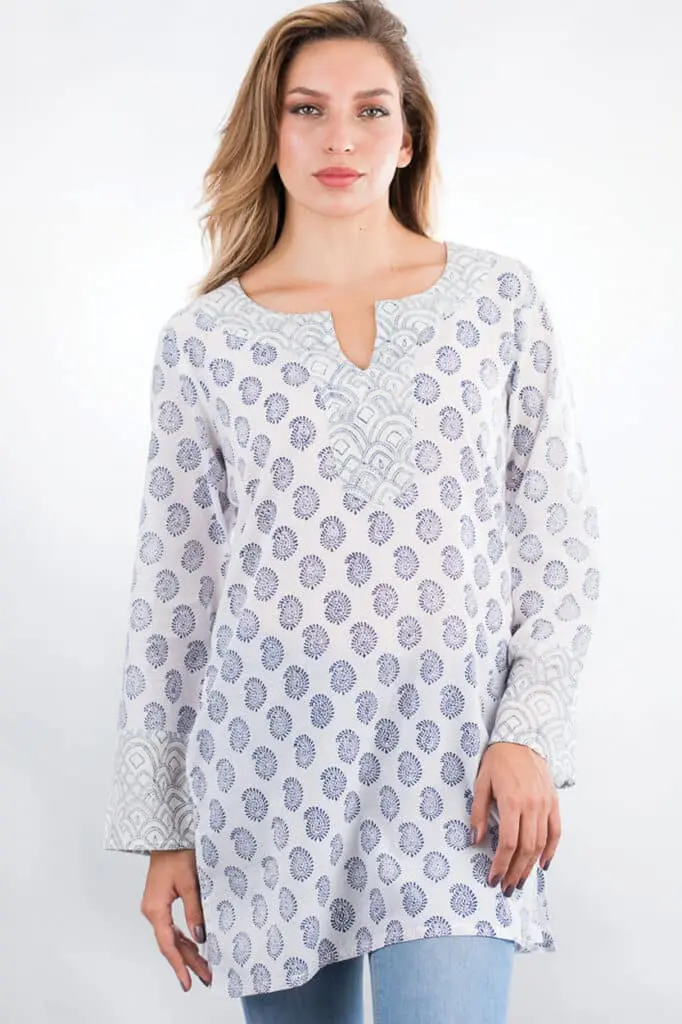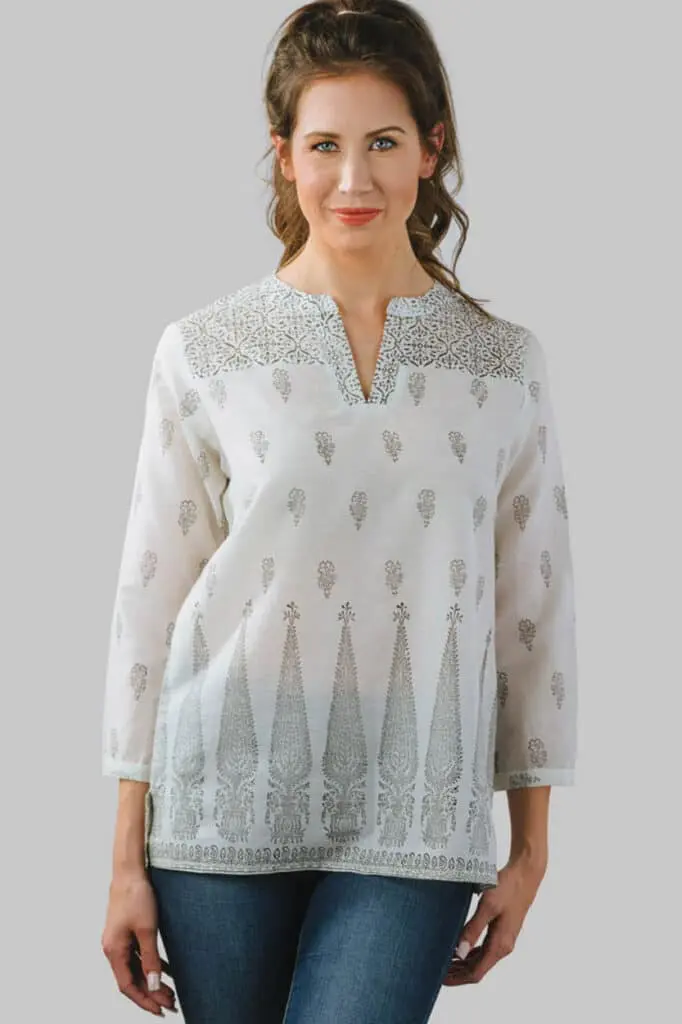How Sevya’s Block Printed Apparel is Made
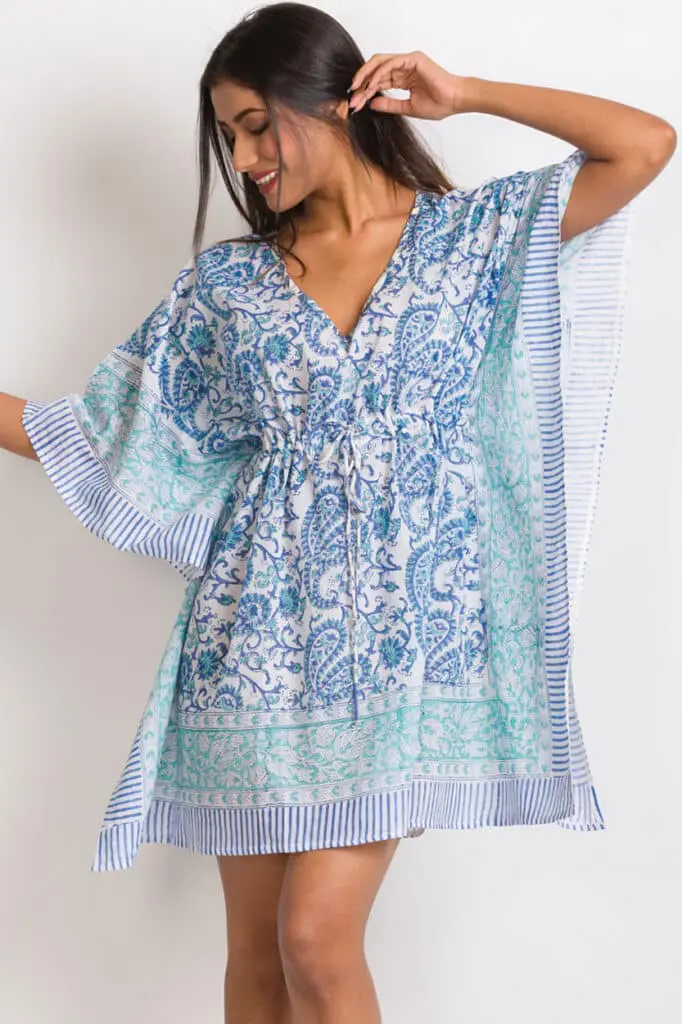
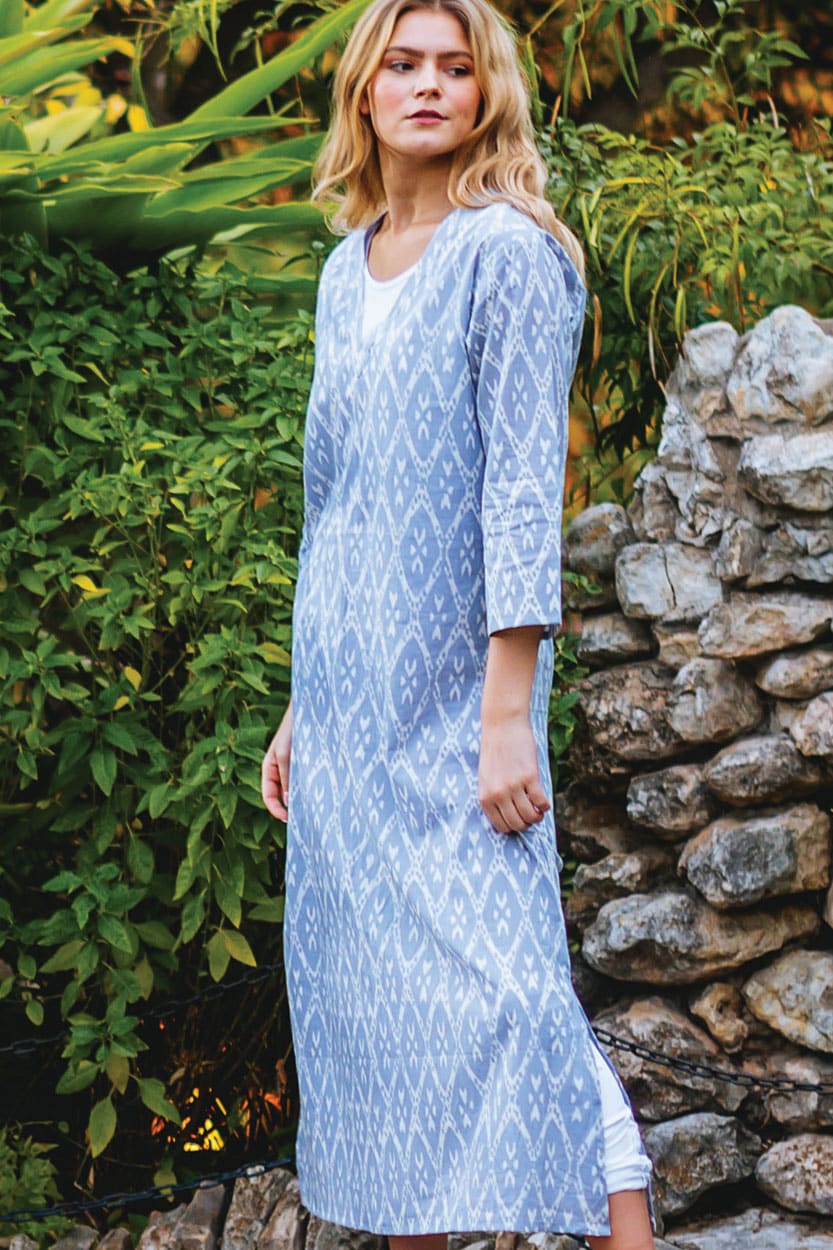
Sevya works with artisan groups across India to produce our block printed tunics and caftans. Each piece of fabric is block printed by hand using hand carved wooden blocks that are passed down from generation to generation in artisan families. The designs include geometric shapes as well as plant and animal patterns.
The blocks must line up perfectly to create a seamless design, and it takes years of practice to master this skill. Like all handmade clothing, minor variations in the printing makes each piece unique. The video above shows our best-selling Lajita Caftan being made. This particular style is available in 2 sizes (S/M and L/XL) and is a comfortable, elegant style with pockets.
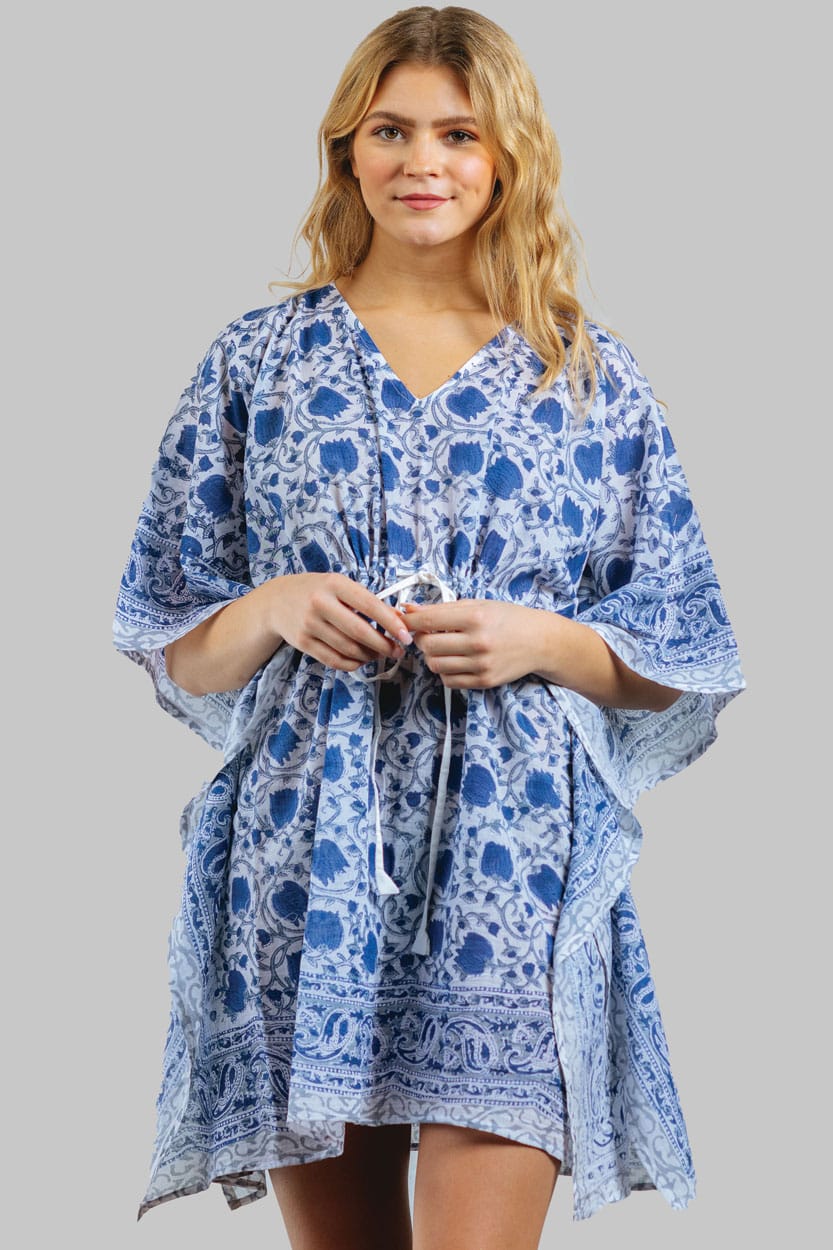
Our new line of cotton caftans feature floral block printing on soft cotton fabric. In this design, multiple blocks are used to create prints with additional colors and add depth to the designs. This style is available in one size, and can be worn as a beach cover up, or as a top when paired with leggings or pants. We also have matching sarongs!
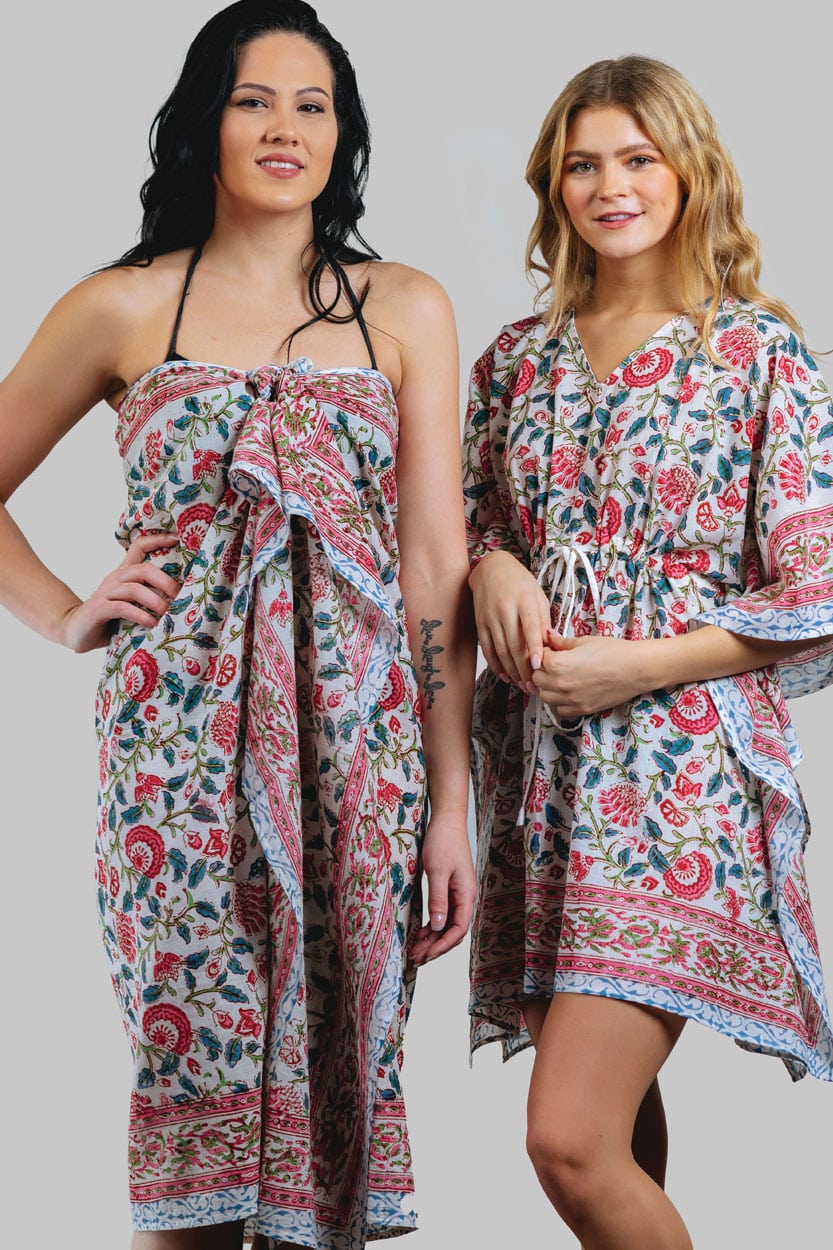
Sevya also offers block printed tunics which are available in traditional Small- XL sizing and feature intricately block printed motifs. Each block print pattern is unique, as the exact placement and combination reflects the artistic expression of the artisan who is doing the block printing.
Our handmade tunic tops also incorporate beautiful hand embroidery, adding another layer of texture and patterns to the design. The style shown below is our Devaki Tunics, which are hand block printed in Rajasthan, India and then hand embroidered by women artisans in Uttar Pradesh, India. Combining multiple art forms in a single garment helps to provide more continuous, fair trade employment for artisans in different regions of India.
Sevya is a Fair Trade certified business, and we work to ensure that our artisan partners in India are paid fairly for their labor and we hope that by exposing the international market to their talent, they will be able to continue supporting their families and keeping these traditions alive.


